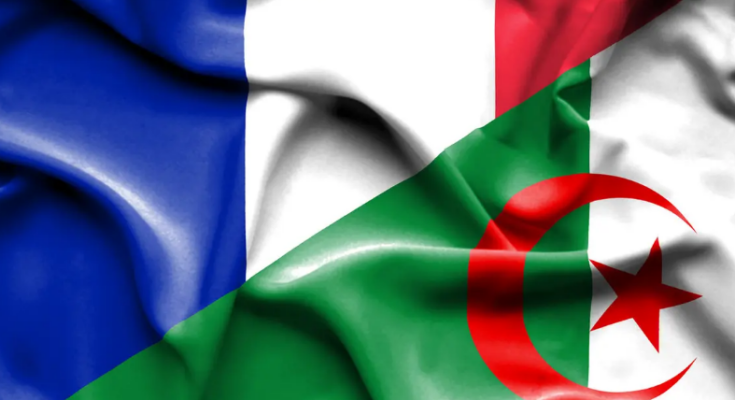I first met Salim, a 35-year-old French citizen of Algerian origin, about 10 years ago at a cafe near Levallois, the Parisian banlieue—or peri-urban ghetto—where he lived at the time. In the course of our wide-ranging discussion about French history and identity, part of the fieldwork for my doctoral dissertation, he told me that while it is possible for some immigrants to become “French,” that isn’t the case for everyone.
“To actually be French, you have to forget yourself a little bit [and] adopt the behaviors that are imposed on us,” he said. “There is a path to follow to become French.”
What it means to be French—outside of official legal definitions—has long been subject to debate in France. In recent years, that debate has become increasingly politicized and—with the rise of France’s anti-immigrant, far-right—increasingly entwined with the question of immigration. Now, as next year’s presidential election approaches, and as recent social movements across Europe demand a reckoning with the continent’s colonial history, what French identity actually means is once again a central feature of political and societal debates.
Salim, whose parents migrated to the country around the time of the Algerian War of Independence, which began in 1954 and ended in 1962, said he is often treated like an outsider because he does not fit the stereotypical image of a French person.
“As a French person of Algerian origin, when I am in France, I don’t feel French French. … But I have a million more reasons to be here than Nicolas Sarkozy,” he said, referring to the then-French president, whose father was Hungarian. “In the past few centuries there wasn’t a shared history between France and Hungary, right? But between France and Algeria—I mean, we used to be a French colony.”
Salim bemoaned the fact that, despite being born and raised in France, and despite his high level of education and various accomplishments, he is still treated as less than his fellow citizens, many of whom do not even consider him to be French. “But I am French. Whether they want it or not, I am French,” he insisted. “France has to accept all French people as they are, and not as they wish they were.”
“Whether they want it or not, I am French.”
Salim’s words came back to me in January, when Benjamin Stora, a noted French historian of immigration, released a government-commissioned report on the memories and legacy of France’s colonization of Algeria, which lasted from 1830 to 1962. French President Emmanuel Macron commissioned the report late last year and has pledged to follow up on some of its recommendations, including by establishing a “memories and truth” commission, headed by Stora, to review the history of the war; increasing access to archival materials from this period; and holding three ceremonies to recognize Algerians who fought on both sides of the war and the agreement that ended it.
Controversially, the Stora report stops short of recommending that France issue an official apology for its colonial rule.
The Stora report reveals the ways in which French colonial history has been silenced despite its omnipresence in contemporary French society, where individuals like Salim continue to face social and material difficulties because of their racial identities and ethnic origins. It also raises the question: Is it possible to reckon with colonialism while simultaneously ignoring its connection to racism?
The Unacknowledged Legacies of Colonialism
To say that France’s recognition of its colonial past in Algeria and elsewhere has been troubled would be an understatement. After years of being downplayed, it reemerged as a contested issue in 2005, when a proposed law seeking to compensate Harkis—Algerians who fought alongside the French military during the Algerian War—and their descendants was amended to include a measure requiring educators to emphasize the “positive aspects” of French colonialism when teaching French history. That amendment was repealed in early 2006 following an uproar by some activists, historians and other scholars.
Since then, successive French presidents have struggled to tackle France’s colonial history and its legacy. In 2007, ahead of a state visit to Algeria, Sarkozy acknowledged that “terrible crimes” had occurred on both sides, but refused to apologize for colonialism, as the Algerian newspaper El Khabar had demanded. Five years later, Sarkozy’s successor, Francois Hollande, acknowledged the crimes of colonialism, but also refused to issue an official apology for them. In 2017, while still a candidate in that year’s presidential election, Macron acknowledged that French colonialism in Algeria was a crime against humanity and stated that, if elected, he would issue an official apology to all its victims. Yet the descendants of French colonialism in both France and Algeria are still waiting for him to follow through.
Recognizing this history matters, because colonial rule and the subsequent war of independence shaped not only Algeria, but also France itself. In 1961, for example, during the war, the Parisian police attacked demonstrators from the Algerian nationalist party, the National Liberation Front or FLN, who had gathered in the 6th arrondissement near Pont St. Michel, a bridge on the Seine. By the end of the assault, security forces had beaten and drowned over a hundred protesters in the river. Weeks later, a hand-painted message appeared on the quay, reading, “Ici on noie les Algeriens,” or “Algerians are drowned here.” Despite that haunting memorial, the memory of this massacre was not recognized for many years. Hollande finally acknowledged the attack in 2012, but today, even basic facts of what happened continue to be disputed. Estimates for the number of people killed in the attack, for instance, range from 40 to up to 300.

The statue of Jean-Baptiste Colbert, the man behind a legal decree that defined the conditions of slavery in the French colonies, was defaced with red paint in Paris
There are many such markers of colonialism throughout France. One is the statue of Jean-Baptiste Colbert that stands outside the National Assembly in Paris, which was defaced with red paint by an anti-racism activist last summer. Colbert is known for writing the Code Noir, or Black Code, a decree passed by King Louis XIV in 1685 that codified how slavery would be instituted in France’s colonial empire. For another, look to Avenue Bugeaud in the 16th arrondissement, which is named after a former French governor-general of Algeria, Thomas Robert Bugeaud, who was known for demolishing Algerian villages in the 19th century. Then there is Rue Bonaporte in the 6th arrondissement, which is named after Napoleon Bonaparte, who, as Macron recently acknowledged in a speech commemorating the bicentennial anniversary of his death, restored slavery to the French colonies in the Caribbean after it had been abolished during the French Revolution. And in supermarkets across France, one can still see the caricature of a Sengalese Tirailleur—a Black colonial infantryman—on the jars and packages of Banania, a popular chocolate breakfast drink, that line the shelves.
In other words, the legacy of French colonialism is on prominent display in contemporary France, and it takes effort not to see it.
A Practice in Colorblind Mythmaking
As historian Itay Lotem has noted, documenting and remembering the history of colonialism is not a benign act. Rather, it is political in nature and therefore crucial to present-day, anti-racist struggles. The Stora report purports to help France face its colonial history, but it does so while deploying a colonial logic that allows it to avoid acknowledging responsibility—and paying reparations.
The limitations imposed by this balancing act are reflected in the myths and stories France tells about itself. Salim, like many children of French colonialism, did not learn about the horrors of colonial rule in Algeria while attending French schools; he learned about them from the stories his family and relatives shared with him. Their memories, which, as Salim notes are a part of French history, have been downplayed or minimized, signaling to him and others of Maghrebin heritage that they are not as French as their white peers.
Stora himself has noted that the history of immigration and immigrants is often seen as separate from conventional narratives of French history. This is partly because of France’s commitment to its “republican values” and universalist ideals, a “colorblind” political framework that asserts that a French person’s primary identity must be their French identity—not their religious or ethnic identity. Officially, race, ethnicity and religion are not even acknowledged as categories, and the French state keeps no record of them in census forms and identification documents, for instance.
The Stora report reveals the ways in which French colonial history has been silenced despite its omnipresence in contemporary French society.
Yet, France is multicultural, diverse and cosmopolitan today because of its colonial history and subsequent migration to the metropole. Emigration from former French colonies in the Maghreb began as early as the start of the 20th century, when World War I inspired people from France’s colonies and overseas departments to move to the Hexagon, as mainland France is called, in search of work. The number of migrants from the Maghreb increased again in the late 1940s to early 1960s, coinciding with the end of World War II in 1945, the end of the Fourth Republic in 1958 and the end of the Algerian War of Independence in 1962. These migrants, many of whom settled in the banlieues of major cities, were only expected to be temporary residents, but due to changes in immigration policies, they ended up settling in France and having families.
Salim is a descendant of two of these migrants. Today, approximately 9 percent of France’s population is foreign-born, including more than 1.8 million migrants from Algeria, Morocco and Tunisia, according to the National Institute of Statistics and Economic Studies, or INSEE. Another 10 percent are the descendants of either one or two immigrant parents.
France continues to fail these postcolonial migrants and their descendants. Data is sparse, of course—but several studies have demonstrated race-based gaps in educational attainment and employment. Another study conducted by the Paris-based National Center for Scientific Research in 2009 found that Black and Maghrebin-origin individuals were six to seven times more likely than white individuals to be stopped by the police. Meanwhile, Black and Maghrebin voters have not been adequately represented in national government, with only a few notable exceptions, like Christiane Taubira and Rachida Dati, both former ministers of justice, and current National Assembly member Daniele Obono.
Acknowledging French colonialism therefore necessitates acknowledging French racism. France has never been, and is not now, colorblind. Rather, its political history serves as a case study for how inadequate such approaches are in incorporating all individuals in a plural society.
The Anti-Racism Movement
Today, the children of French colonialism are fighting back. We see this in recent anti-racist mobilizations sparked by the police killings of racial minorities, including of Lamine Dieng in 2007 and Adama Traore in 2016. This social movement grew even larger in the past 12 months, as the May 2020 police killing of George Floyd in the U.S. reverberated across Europe and connected to anti-racism activism in France. The demands of these activists—including justice for the victims of police killings, punishment of the police officers, and apologies and reparations for colonial slavery—boil down to a call for the French political system to represent and protect all of its constituents, not just its white ones.
And this matters now because any mention of race, racism or Islamophobia, even by white French people, is increasingly seen as a threat to France’s universalist ideals and national cohesion. Macron, for his part, has stated that the country’s anti-racism activists have been inspired by “certain social science theories entirely imported from the United States,” posing a danger to the cohesiveness of French society. The suggestion was that race and racism are foreign ideas with no analytical relevance in France.
That is especially ironic considering that ideas of racial difference in the U.S. have their origins in European Enlightenment thinkers, including French writers Arthur de Gobineau and Francois Bernier, and that today, the field of postcolonial studies in the U.S. has itself been heavily influenced by the works of Aime Cesaire and Frantz Fanon, both of whom were born in French-administered, overseas territories.
The Stora report—particularly its omission of an apology for colonialism and the promised “memory and truth” commission—prompted furious debate in France between those who saw the report as a missed opportunity and those who felt it went too far. On the one hand, the Stora report does not discuss racism, despite it being key to understanding the legacies of colonialism. On the other, the virulent criticism the report received for even acknowledging France’s responsibility for colonial-era violence reflects the pressure French politicians face to advocate moving beyond or forgetting this difficult history.
Meanwhile, the notion that colonization brought civilization to parts of Africa, Asia and the Caribbean—a logic once used to justify French colonial rule—persists today. In a recent television appearance, for instance, French columnist Guillaume Bigot urged Algerians to “feel proud” of being colonized by France. Examples of other colonial-era logics that have hung around to this day are easy to find.
The desire of France’s “visible minorities” to be recognized as full citizens, rather than as immigrants or foreigners, shows how deeply invested they are in French republicanism, despite how it marginalizes them.
Today the discourse surrounding anti-racism efforts, typified by Macron’s characterization of them as divisive ideas imported from abroad, blatantly serves political aims in advance of the country’s 2022 presidential elections, when he will almost certainly face off against Marine Le Pen, the leader of the far-right, anti-immigrant National Rally party, in the second-round run-off. But it is also clear that France is still trying to have it both ways, acknowledging that it was once a colonial empire while denying that racism was a part of that history—and is still part of contemporary French society.
France’s minorities know better. Houria Bouteldja, a French activist of Algerian origin who started the Party of the Indigenous of the Republic, wrote in her recent book that, “It only takes one generation for an Italian, a Portuguese, or a Pole to become really French, while this dignity will always in effect be denied to the old, deported Africans who remain relegated to [an inferior status in] the Hexagon or the dusty corners of the Empire—as if they were forever in training.”
The discrimination and racism that Salim and other “visible minorities” continue to experience in France continually reminds French society of the failures of its universalist model. But in another way, their desire to be recognized as full citizens, rather than as immigrants or foreigners, shows how deeply invested they are in French republicanism, despite how it marginalizes them. Their claims that France suffers from systemic racism are not a disavowal of the country they call home, but rather a critique of how it has failed to live up to its own ideals.
We cannot make sense of contemporary France without accounting for this history of racism. And without an official apology for colonialism, and a comprehensive education as to the role of colonial rule of Algeria in French history, the wounds it inflicted will remain. Stora’s commission might not fill in this blind spot, but France still has to try. Otherwise, Macron’s warning that the country might end up divided by these issues could very well be a self-fulfilling prophecy.
(Jean Beaman is an associate professor of sociology at the University of California, Santa Barbara, and author of “Citizen Outsider: Children of North African Immigrants in France” (University of California Press, 2017). She is currently writing a new, ethnographic book on anti-racism and police violence in France.)









